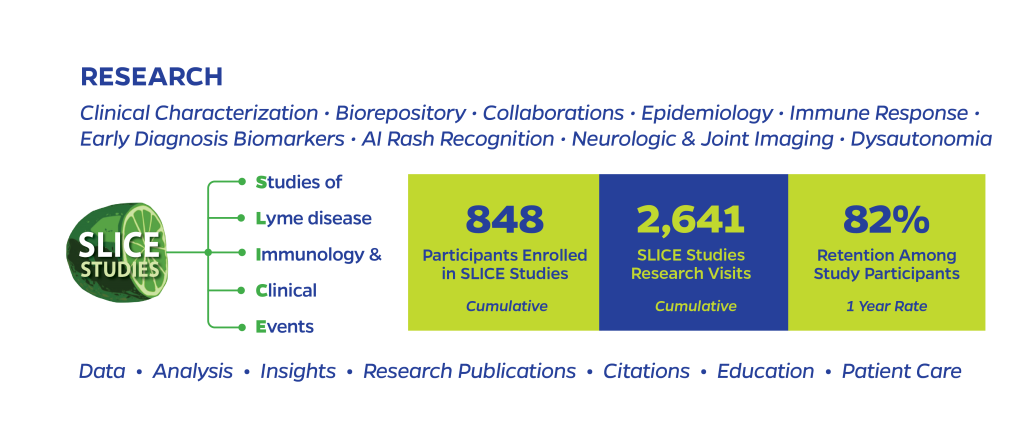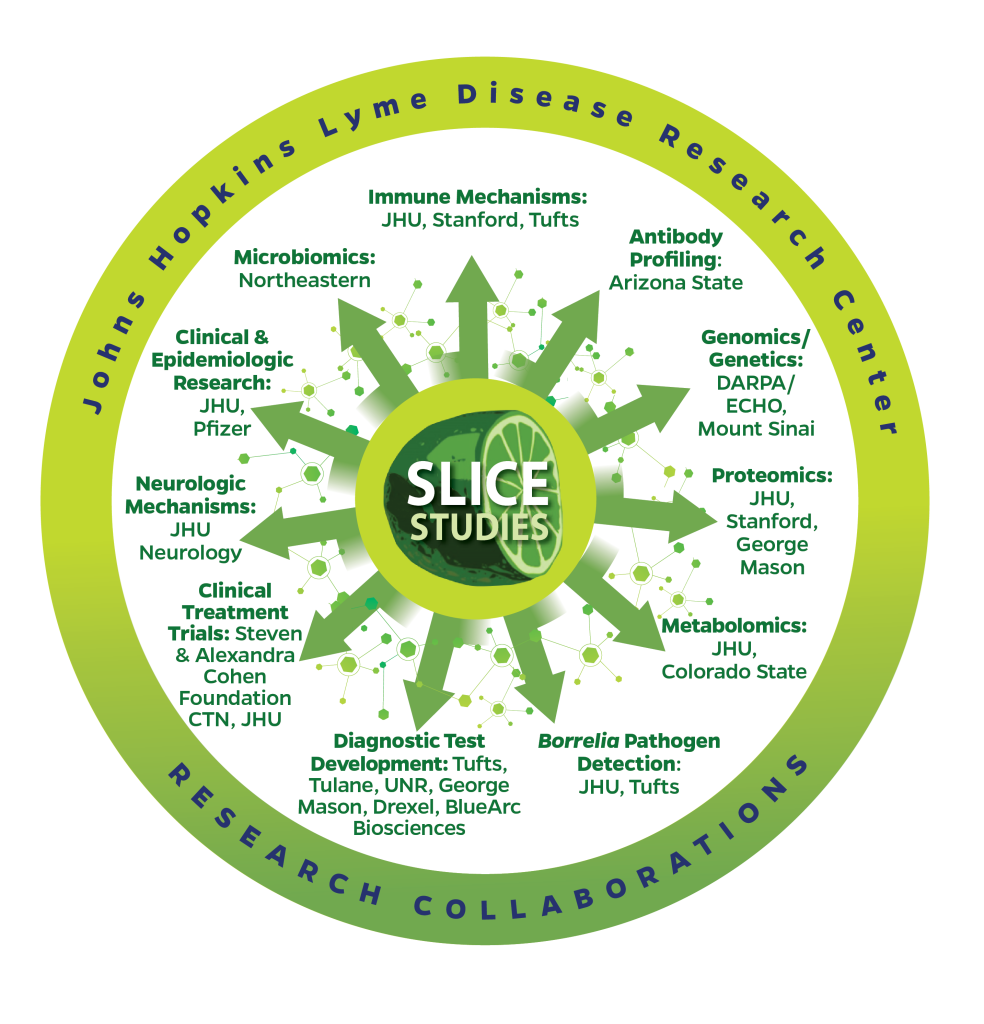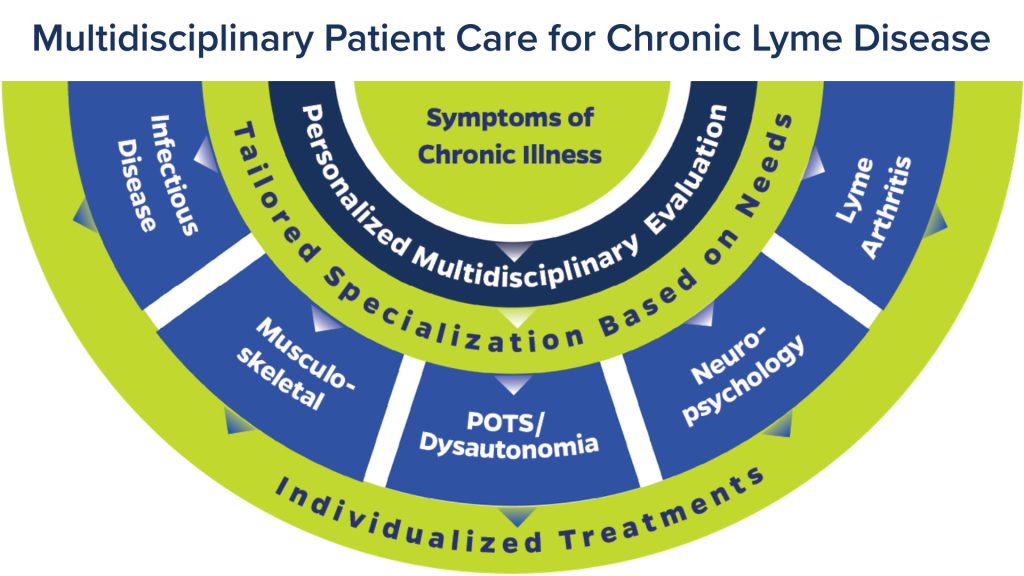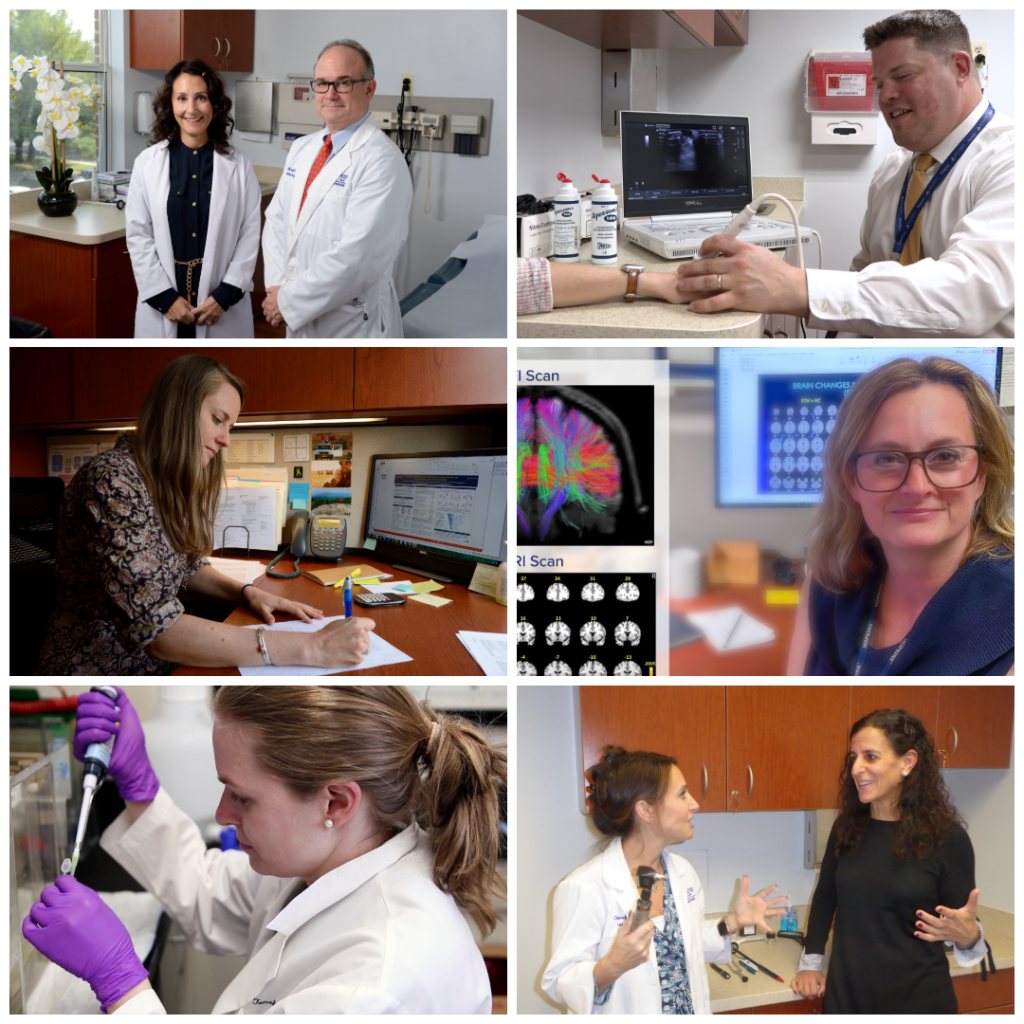Dr. Aucott is the Barbara Townsend Cromwell Professor in Lyme Disease and Tick-borne Illness, Associate Professor of Medicine, Johns Hopkins University School of Medicine, and Director, Johns Hopkins Lyme Disease Research Center and Clinical Care Program.
Celebrating a Decade of Multidisciplinary Excellence
Since its founding in the spring of 2015, the Johns Hopkins Lyme Disease Research Center and Clinical Care Program has been transforming the landscape of Lyme disease research and patient care. With a bold vision to bridge the gaps in understanding, diagnosing, and treating Lyme disease, the Center has become a leader in collaborative multidisciplinary scientific discovery and a beacon of hope for patients and families.
A Vision Realized
The Center was created to foster a multidisciplinary approach to address the complex, multi-system challenges of Lyme disease. By uniting experts in multiple disciplines, the Center ensures that every patient receives comprehensive, individualized care, and that real patient experiences drive groundbreaking research.
Milestones and Achievements
Foundational Years
- 2008: Launched SLICE Studies to advance understanding of acute and chronic Lyme disease
- 2015: Established the Johns Hopkins Lyme Disease Research Center at Johns Hopkins University School of Medicine, Division of Rheumatology
A Decade of Progress
- Biorepository Expansion: Grew SLICE biorepository to over 104,000 blood and tissue samples
- Collaboration: Fostered 44 external research partnerships across the US
- Publications: Authored 78 peer-reviewed studies, including evidence for the biological basis of post-treatment Lyme disease
- Innovation: Developed AI-powered rash recognition tools and pioneered advanced imaging for brain and joint inflammation
- Diagnostic Acceleration: Identified features of immune dysfunction and biomarkers critical to accelerating the development of innovative diagnostics and treatments
- Clinical Growth: Expanded multidisciplinary care to include cross-functional expertise in arthritis, dysautonomia, and neuropsychology
- Funding: Secured initial funding from the NIH and DoD, leveraging groundbreaking insights from visionary, philanthropically backed research
- Education: Launched the nation’s first Internal Medicine Lyme disease fellowship program
- Endowed Professorship: Established an endowed professorship dedicated to Lyme and tick-borne illness
- Patient Impact: Improved thousands of lives through compassionate, science-driven care
The SLICE Studies
At the heart of the Center’s research program are the SLICE Studies (Study of Lyme disease Immunology and Clinical Events) which follow Lyme disease patients over time and generate a robust biorepository of over 104,000 blood and tissue samples along with comprehensive clinical and epidemiologic data. The SLICE biorepository enables new discoveries about Lyme disease, from immune dysfunction to diagnostic biomarkers.

Multidisciplinary Research Collaborations
The Center’s rigorously characterized SLICE biorepository is regarded as an invaluable resource for advancing academic, scientific, and medical discoveries and form the basis for 44 innovative multidisciplinary research collaborations with 29 distinct institutions nationwide. These collaborations are unlocking the complex biological mechanisms of Lyme disease, and leading to biomarker identification and diagnostic test validation.

Expanding Multidisciplinary Care
Over the past decade, the Center has expanded its clinical expertise by adding specialists in rheumatology, infectious disease, Lyme arthritis, neuropsychiatry, and dysautonomia to provide collaborative multidisciplinary care for the more complex chronic Lyme disease patients.

Faculty Spotlight:
John Miller, MD, Assistant Professor of Medicine, Division of Rheumatology, heads up Center’s Lyme Arthritis Program and investigates the musculoskeletal and autoimmune complications that can develop. He has a particular interest in the use of ultrasound assessment for detection of subtle inflammatory changes in Lyme disease patients.
Brit Adler, MD, Assistant Professor of Medicine, Division of Rheumatology, is a translational physician-scientist with an interest in postural orthostatic tachycardia syndrome (POTS) and dysautonomia that can occur in Lyme disease and COVID patients. She evaluates Lyme Center patients in the Johns Hopkins Autonomic Testing Lab and performs the tilt table test and other evaluations.
Alison Rebman, MPH, Assistant Professor, Johns Hopkins University School of Medicine, Director for Clinicial and Epidemiological Research Alison leads a variety of research initiatives at the Center by providing public health research design, biostatistics, data management, and study coordination. She has co-authored numerous manuscripts, with particular research interests in sex and gender-based differences in Lyme disease health outcomes and the qualitative illness experience of Lyme disease, such as illness invalidation.
Cherie Marvel, PhD, Associate Professor of Neurology, Psychiatry and Behavioral Sciences at Johns Hopkins University School of Medicine, Director, Cognitive and Neuropsychiatric Laboratory, Neurology Vice Chair of Research Funding and Advising. Dr. Marvel’s innovative research at our Center using advanced MRI imaging, is revealing significant insights into unexpected white matter changes in the brains of patients with chronic symptoms and post-treatment Lyme disease (PTLD). These findings provide objective evidence of neurologic dysfunction in post-treatment Lyme disease (PTLD) and provide novel directions for new diagnostic tools and treatments aimed at improving brain health in Lyme disease patients.

Pictured clockwise from top left: Cheryl Novak, MSN, CRNP, Certified Registered Family Nurse Practitioner; John Aucott, MD, Director, Lyme Disease Research Center; John Miller, MD, Lyme Arthritis Program; Cherie Marvel, PhD, Director, Cognitive and Neuropsychiatric Laboratory; Susan Joseph, BSN, RN, Senior Research Nurse; Brit Adler, MD, Dysautonomia Program; Alison Rebman, MPH, Director for Clinicial and Epidemiological Research
Patient-Centered Care
Patients describe their experience at the Center as life-changing. They feel heard, respected, supported, and empowered by a care team dedicated to both healing and scientific progress.
Looking Ahead
As the Center enters its second decade, the commitment to multidisciplinary collaboration, innovative research, and patient-centered care is stronger than ever. Continued philanthropic support will be crucial to launching new projects and sustaining the Center’s mission to improve outcomes for all affected by Lyme disease.
Watch our 10th Anniversary video to hear more about our journey and hopeful vision for the future.
Thank you to our patients, supporters, collaborators, and the Lyme disease community for making this decade of impact possible.


